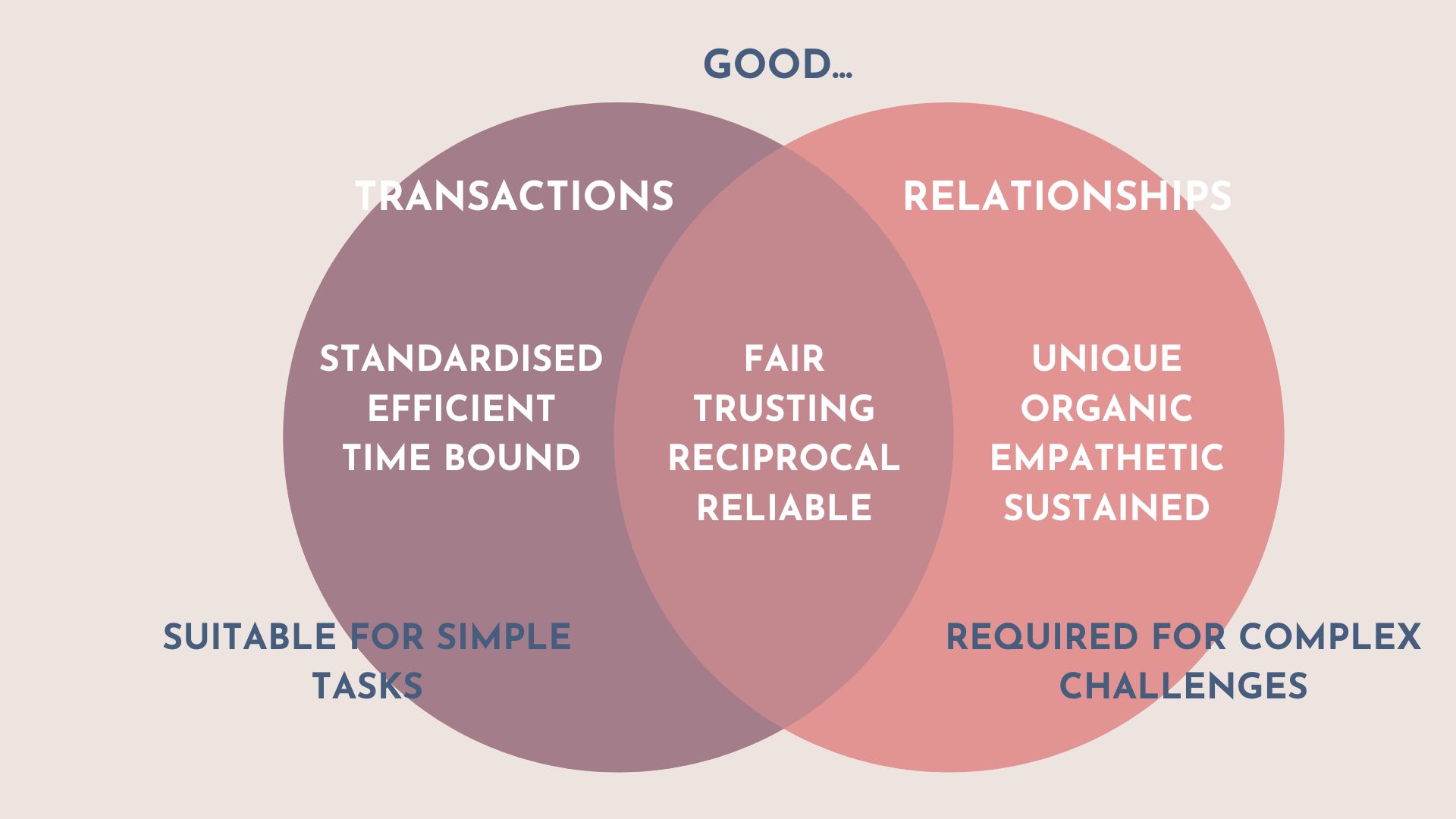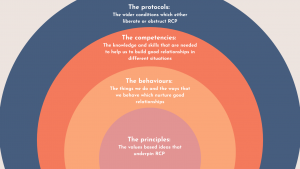Key Concepts | What we mean by good relationships

We often use the word ‘relationship’ to mean different things – from the relationship we might have with our bank to the relationship we might have with a family member.
To draw out what we mean by good relationships, we find it useful to draw comparisons with transactions. We think there are three important distinctions to be made:

First, there is the difference between a relationship and a transaction. One is not intrinsically preferable to the other. It all depends on the context. For example, I have a relationship with my sister. My association with the rail company from whom I bought a ticket is purely transactional.

Second, there is nothing inevitably bad about a transaction. If the ticket is supplied promptly and fairly it was a reciprocal exchange and a good transaction.

Third, relationships aren’t always good. They can be abusive, controlling or extractive. Just as there are good and bad transactions, there are also good and bad relationships.
This leads us to suggest some defining, and some common, characteristics for good relationships and good transactions:

A good relationship is unique, organic and unscripted. It’s empathetic and it develops over time as value is created and carried forward from one interaction to the next. A good relationship may be an end in itself, not defined by task

A good transaction follows a standard course and it is efficient. It is likely to be focused on a specific task, and be time limited and with a clear and explicit purpose

Good relationships and good transactions are both trusting, reciprocal, reliable and fair.
Being clear on where a good transaction will suffice and where we need to invest in building good relationships is important. And as a general rule of thumb, more complex situations and challenges tend to require good relationships, whereas for more simple and straightforward situations a good transaction can often suffice.
More key concepts…
What we mean by relationship-centred practice
Principles, behaviours and conditions that underpin relational ways of working

Why putting relationships first makes a difference
Stories and statistics that help make the case for putting relationships first

